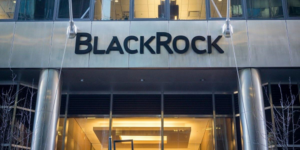BlackRock’s Bold Move: A Deep Dive into the Panama Canal Acquisition

At Extreme Investor Network, we keep our finger on the pulse of significant economic developments that impact investors and consumers alike. One of the most eye-catching stories currently unfolding is BlackRock’s audacious $22.8 billion deal to acquire a 90% stake in the Panama Ports Company. This strategic move, which includes control of the crucial ports of Cristobal and Balboa at either end of the Panama Canal, raises essential questions about the implications for global trade, national sovereignty, and the very nature of capitalism.
A Major Infrastructure Deal
BlackRock, the world’s largest fund management firm, is no stranger to massive deals. Yet, this landmark acquisition marks its largest investment in infrastructure to date. The Panama Canal, a pivotal global trade artery, serves as a critical geopolitical asset. The question that arises is: What does this mean for the control of one of the world’s most essential shipping routes?
While the deal has been touted as a win for America—especially as it is led by an American company—this acquisition also allows for significant control to shift to an unelected entity, which has ties to powerful organizations such as the World Economic Forum (WEF). Such alliances raise eyebrows among those concerned about the implications of globalism on local economies and national independence.
The Neofeudalism Landscape
This acquisition underscores a concerning trend: the rise of neofeudalism, where multinational corporations exert control over vital infrastructure, subverting the authority of governments and eroding democratic accountability. If successful, BlackRock will not just steer its own financial strategies but could also influence global trade policies and international relations based on its Environmental, Social, and Governance (ESG) policies, whose impact could resonate far beyond corporate boards and investment portfolios.
This shift must be scrutinized because it could lead to a scenario where one company’s policies significantly constrain national interests, especially when leaders of corporations overlap with decision-makers in powerful global institutions.
A Double-Edged Sword for U.S. Interests
At face value, an American company acquiring a vital trading route may seem beneficial. However, with BlackRock’s close alignment to globalist agendas promoted by the WEF, one must question whether this acquisition genuinely aligns with U.S. interests. Should we be prepared for a future where capital flows are weaponized for geopolitical leverage rather than benefiting the larger populations?
Moreover, while BlackRock’s influence allows it unprecedented access and control, oversight mechanisms appear relatively nebulous. This lack of clarity raises concerns about accountability, especially when it comes to the governance of essential assets like the Panama Canal.
Conclusion: Rethinking American Profits
Is it indeed a win for America, or are we trading short-term financial gains for long-term sovereignty risks? From the perspective of the Extreme Investor Network, we urge our readers to maintain a vigilant eye as this deal evolves. It is crucial to examine not just who owns these critical infrastructures but also how such ownership will shape the economic landscape and democratic processes.
In our ever-changing economic climate, we remain committed to providing insightful analysis and updates as this acquisition unfolds and its ramifications become more apparent. Stay informed—knowledge is your best investment.

